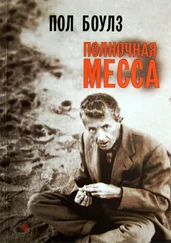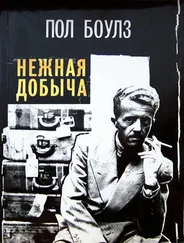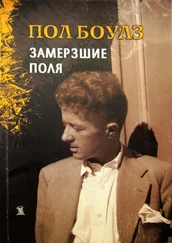Пол Боулз - Let it come down
Здесь есть возможность читать онлайн «Пол Боулз - Let it come down» весь текст электронной книги совершенно бесплатно (целиком полную версию без сокращений). В некоторых случаях можно слушать аудио, скачать через торрент в формате fb2 и присутствует краткое содержание. ISBN: , Жанр: Современная проза, на английском языке. Описание произведения, (предисловие) а так же отзывы посетителей доступны на портале библиотеки ЛибКат.
- Название:Let it come down
- Автор:
- Жанр:
- Год:неизвестен
- ISBN:1-931082-19-7
- Рейтинг книги:5 / 5. Голосов: 1
-
Избранное:Добавить в избранное
- Отзывы:
-
Ваша оценка:
- 100
- 1
- 2
- 3
- 4
- 5
Let it come down: краткое содержание, описание и аннотация
Предлагаем к чтению аннотацию, описание, краткое содержание или предисловие (зависит от того, что написал сам автор книги «Let it come down»). Если вы не нашли необходимую информацию о книге — напишите в комментариях, мы постараемся отыскать её.
Let it come down — читать онлайн бесплатно полную книгу (весь текст) целиком
Ниже представлен текст книги, разбитый по страницам. Система сохранения места последней прочитанной страницы, позволяет с удобством читать онлайн бесплатно книгу «Let it come down», без необходимости каждый раз заново искать на чём Вы остановились. Поставьте закладку, и сможете в любой момент перейти на страницу, на которой закончили чтение.
Интервал:
Закладка:
Looming suddenly out of the rain, coming toward them down the ravine, a figure appeared. It was a small gray donkey moving along slowly, his panniers empty, drops of rain hanging to the fuzz along his legs and ears. Thami stood aside to let the animal pass, his face showing no expression of surprise. «We must be getting near,» said Dyar. He had meant to keep quiet, let Thami break the silence between them, but he spoke without thinking.
«A little more,» said Thami impassively. An old man dressed in a tattered woolen garment came into view around a bend, carrying a stick and making occasional guttural sounds at the donkey ahead. «A little more,» Dyar thought, beginning to feel light-headed. «How much more?» he demanded. But Thami, with the imprecise notions of his kind about space and time, could not say. The question meant nothing to him. «Not much,» he replied.
The way became noticeably steeper; it required all their attention and effort to continue, to keep from sliding back on loose stones. The wind had increased, and was blowing what looked like an endless thick coil of cloud from the crags above downward into their path. Presently they were in its midst. The world was darker. «This isn’t funny,» Dyar found himself thinking, and then he laughed because it was absurd that a mere sudden change in lighting should affect his mood so deeply. «Lack of food,» he said to himself. He bumped against Thami purposely now and then as he climbed. If they should get too far apart they would not be able to see each other. «I hope you’ve got something to eat up in this cabin of yours,» he said.
«Don’t worry». Thami’s voice was a little unpleasant. «You’ll eat tonight. I’ll get you food. I’ll bring it to you. Don’t worry».
«You mean there’s no food in the house? Where the hell are you going to get it?»
«They got nothing to eat at the house because no one is living there since a long time. But not very far is the house of my wife’s family. I’ll get you whatever you want there. They won’t talk about it. They’re good people».
«He thinks he’s going to keep me cooped up,» Dyar said to himself. «He’s got another think coming». Then as he climbed in silence: «But why? Why does he want to keep me hidden?» And so the question was reduced once more to its basic form: «What does he know?» He resolved to ask him tonight, point-blank, when they were sitting quietly face to face and he could observe whatever changes might come into Thami’s expression: «What did you mean when you said your wife’s family wouldn’t talk about it?»
As the gradient increased, their climb became an exhausting scramble to keep from sliding backward. The heavy fog was like wind-driven smoke; every few seconds they were revealed briefly to each other, and even a sidewall of rock beyond might appear. Then with a swoop the substance of the air changed, became white and visible, and wrapped itself around their faces and bodies, blotting out everything. They went on and on. It was afternoon; to Dyar it seemed to have been afternoon forever. All at once, a little above him Thami grunted with satisfaction, emitted a long: «Aaah!» He had sat down. Dyar struggled ahead for a moment and saw him. He had pulled out his kif pipe and was filling it from the long leather mottoui that was unrolled across his knees. «Now it’s easy,» he said, moving a little along the rock to make room for Dyar. «Now we go down. The town is there». He pointed straight downward. «The house is there». He pointed slightly downward, but to the left. Dyar seated himself, accepting the pipe. Between puffs he sniffed the air, which had come alive, smelled now faintly like pine trees and farmyards. When he had finished the pipe he handed it back. The kif was strong; he felt pleasantly dizzy. Thami refilled the pipe, looking down at it lovingly. The stem was covered with tiny colored designs of fish, water-jars, birds and swords. «I bought this sebsi three years ago. In Marrakech,» he said.
They sat alone in the whiteness. Dyar waited for him to smoke; the kif was burned in three long vigorous puffs. Thami blew the ball of glowing ash from the little bowl, wound the leather thongs around the mottoui, and gravely put the objects into his pocket.
They got up and went on. The way was level for only an instant, almost immediately becoming a steep descent. They had been sitting at the top of the pass. After the long hours of breathing in air that smelled only of rain, it was pleasantly disturbing to be able to distinguish signs of vegetable and animal life in the mist that came up from the invisible valley below. Now their progress was quicker; they hurried with drunken movements from one boulder to another, sometimes landing against them with more force than was comfortable. It had stopped raining; Dyar had pulled the brief case out from under his coat and was carrying it in his left hand, using his free right arm for balance and as a bumper when it was feasible.
Soon they were below the cloud level, and in the sad fading light Dyar stood a moment looking at the gray panorama of mountains, clouds and shadowy depths. Almost simultaneously too, they were out of reach of the wind. The only sound that came up from down there was the soft unvaried one made by a stream following its course over many rocks. Nor could he distinguish any signs of human habitation. «Where’s the house?» he said gruffly. That was the most important detail.
«Come on,» Thami replied. They continued the downward plunge, and presently they came to a fork in the trail. «This way,» said Thami, choosing the path that led along the side of the mountain, a sheer drop on its right, and on the left above, a succession of cliffs and steep ravines filled with the debris of landslides.
Then Thami stood still, one eyebrow arched, his hand to his ear. He seized Dyar’s wrist, pulled him back a few paces to a huge slab of rock slightly off the path, pushed him to a squatting position behind it, and bent down himself, peering around every few seconds. «Look,» he said. Half a hundred brown and gray goats came along the path, their hooves making a cluttered sound among the stones. The first ones stopped near the rock, their amber eyes questioning. Then the pressure of those following behind pushed them ahead, and they went on past in disorder, the occasional stones they dislodged bouncing from rock to rock with a curious metallic ring. A youth with a staff, wearing a single woolen cape slung over his shoulders, followed the flock. When he had passed, Thami whispered: «If he sees you, my friend, it would be very bad. Everybody in Agla would know tomorrow».
«What difference would that make?» Dyar demanded, not so much because he believed it did not matter, as because he was curious to know exactly what his situation was up here.
«The Spaniards. They would come to the house».
«Well, let ’em come. What difference would it make?» He was determined to see the thing through, and it was a good opportunity. «I haven’t done anything. Why should they take the trouble to come looking for me?» He watched Thami’s face closely.
«Maybe they wouldn’t hurt you when you show them you got an American passport». Thami spoke aloud now. «Me, I’d be in the jail right away. You have to have a visa to get here, my friend. And then they’d say: How did you get in? Don’t you worry. They’d know you were coming in by a boat. And then they’d say: Where is the boat? And whose boat? And worst: Why did you come by a boat? Why didn’t you come by the frontera like everybody else? Then they talk on the telephone to Tangier and try to know why from the police there…» He paused, looking questioningly at Dyar, who said: «So what?» still studying Thami’s eyes intently.
«So what?» said Thami weakly, smiling. «How do I know so what? I know you said you will give me five thousand pesetas to take you here, and so I do it because I know Americans keep their word. And so you want to get here very much. How do I know why?» He smiled again, a smile he doubtless felt to be disarming, but which to Dyar’s way of thinking was the very essence of Oriental deviousness and cunning.
Читать дальшеИнтервал:
Закладка:
Похожие книги на «Let it come down»
Представляем Вашему вниманию похожие книги на «Let it come down» списком для выбора. Мы отобрали схожую по названию и смыслу литературу в надежде предоставить читателям больше вариантов отыскать новые, интересные, ещё непрочитанные произведения.
Обсуждение, отзывы о книге «Let it come down» и просто собственные мнения читателей. Оставьте ваши комментарии, напишите, что Вы думаете о произведении, его смысле или главных героях. Укажите что конкретно понравилось, а что нет, и почему Вы так считаете.









